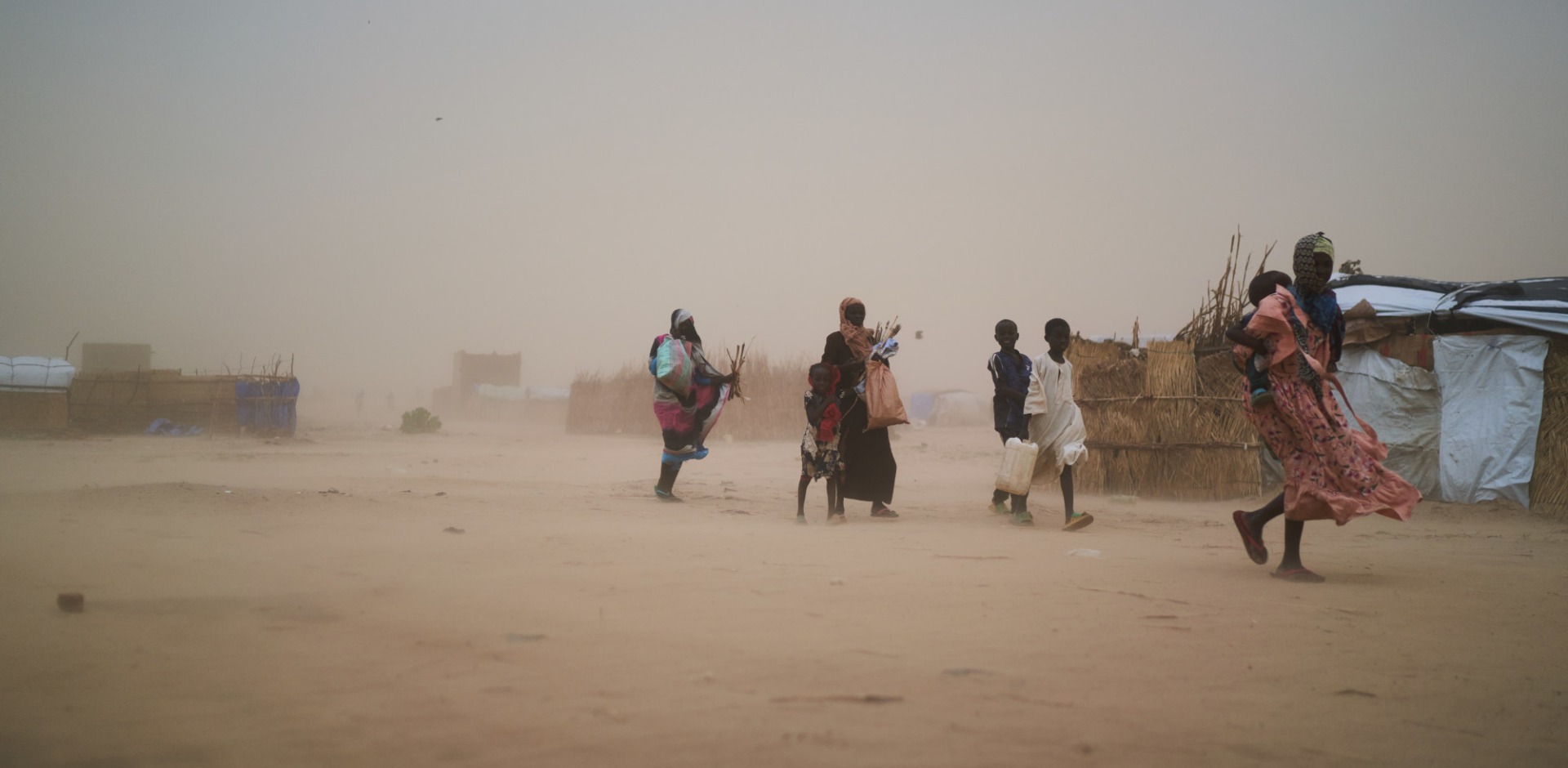
FAMINE IN SUDAN
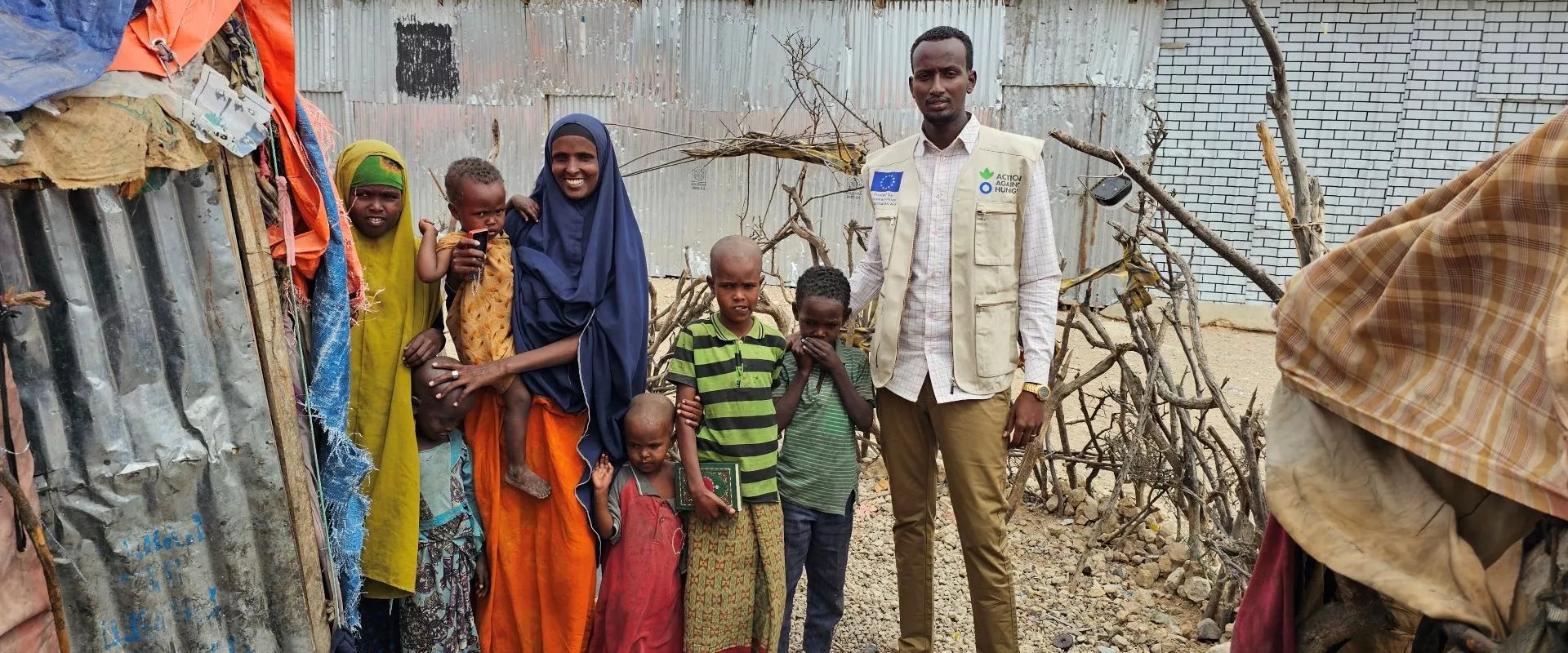
When Habiba Waraabow’s home was destroyed, she fled with all that she could carry. The widowed mother of six was forced to flee with her children after a violent group destroyed her grocery shop.
“My home and shop were completely burned to ashes,” she said. “We left with nothing but a bag of corn flour.”
With the scorching sun beating down, Habiba and her children walked five days along empty roads, desperately seeking safety. She eventually made it to the Wajid District in Somalia’s Bakool Region; she now lives in a temporary settlement. Today, she must navigate the daily challenge of providing food and stability to her family.
Across the Bakool Region, communities are struggling under the combined weight of climate extremes and conflict. Families who traditionally relied on farming and livestock are losing their livelihoods, leading to a surge in malnutrition and putting young children at severe risk.
Most families like Habiba’s borrow money from relatives during the dry season and repay it during the rainy season after harvest, or when their animals give birth or are in better condition for sale. After her long and arduous journey, Habiba was thrust into debt with little chance to repay it.
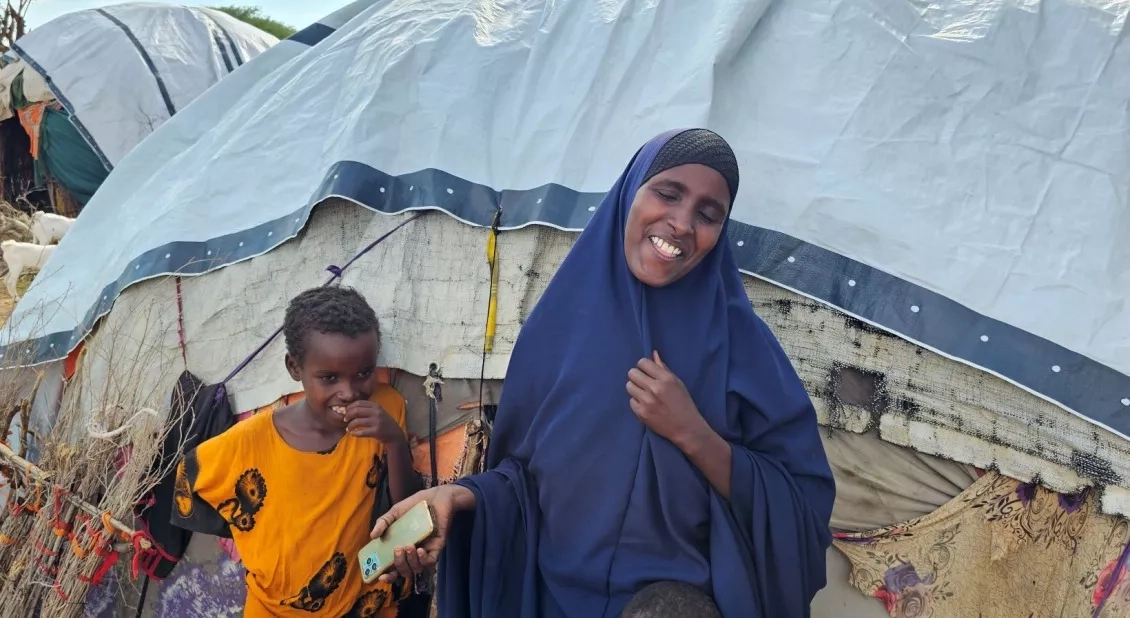
Habiba’s life began to change when Action Against Hunger launched a cash assistance program in Wajid. Our staff had worked there for decades and noticed an alarming increase in food insecurity, limited access to clean water, and unsanitary conditions. Women and children were the most vulnerable.
Action Against Hunger partnered with the European Civil Protection and Humanitarian Aid Operations (ECHO) to save lives in Bakool’s four districts: Wajid, where Habiba lives; Tiyeglow, Rabdhure, and Elbarde.
In July, Habiba began to receive $140 per month through mobile transfers. These online transfers are critical for families that have no ability to travel long distances. Action Against Hunger also set up a community call center for those without access to technology.
“The money has become everything for us,” Habiba shares. “I was able to buy rice, beans, and vegetables for my children. Having cash meant we could buy exactly what we needed.” For Habiba, this aid meant much more than food—it was a way to restore her independence and provide for her family on her terms.
Habiba also enrolled in a nearby agriculture program to restart her livelihood and begin growing food for her family again. Through the program she received seeds, farming tools, and technical support.
With fresh flowing water from a nearby rehabilitated well, Habiba is eager to begin gardening alongside other women who have graduated from Action Against Hunger’s mother-to-mother support group sessions. In these sessions, women learn about improving child nutrition and receive training in small-scale gardening.
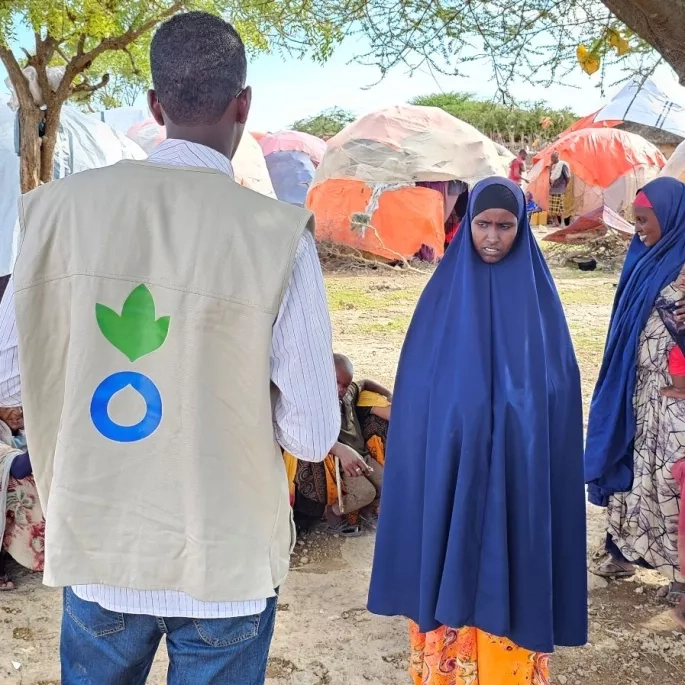
Conflict and climate shocks continue to affect Somalia, resulting in forced displacement and acute food and nutrition crises. In 2023, a severe drought and extreme flooding impacted more than 2.5 million people and displaced over 1.2 million. Today, families still suffer from the aftershocks.
In crowded displacement settlements, women like Habiba worry about unsanitary conditions and disease outbreaks. Access to clean water is essential for building community resilience, and this supply is critical for farming, cleaning, cooking, and drinking. In Habiba’s new village, Action Against Hunger constructed 22 communal latrines to improve sanitation for newly displaced families, preventing waterborne illnesses. These facilities serve up to 30 people each and create safer, cleaner conditions for crisis-affected families.
Our staff also reconstructed wells, and rehabilitation efforts deepening the wells to improve water availability, performing structural repairs, testing the water for quality, and establishing water committees to manage and maintain the wells for the community’s shared benefit. This improvement has brought clean water within 650 feet of over 4,000 people, reducing their risk of deadly waterborne illnesses.
“Before Action Against Hunger’s support, we saw frequent acute diarrhea due to unsafe water,” said Habiba. “With hygiene kits and access to clean water, the fear in us has subsided.”
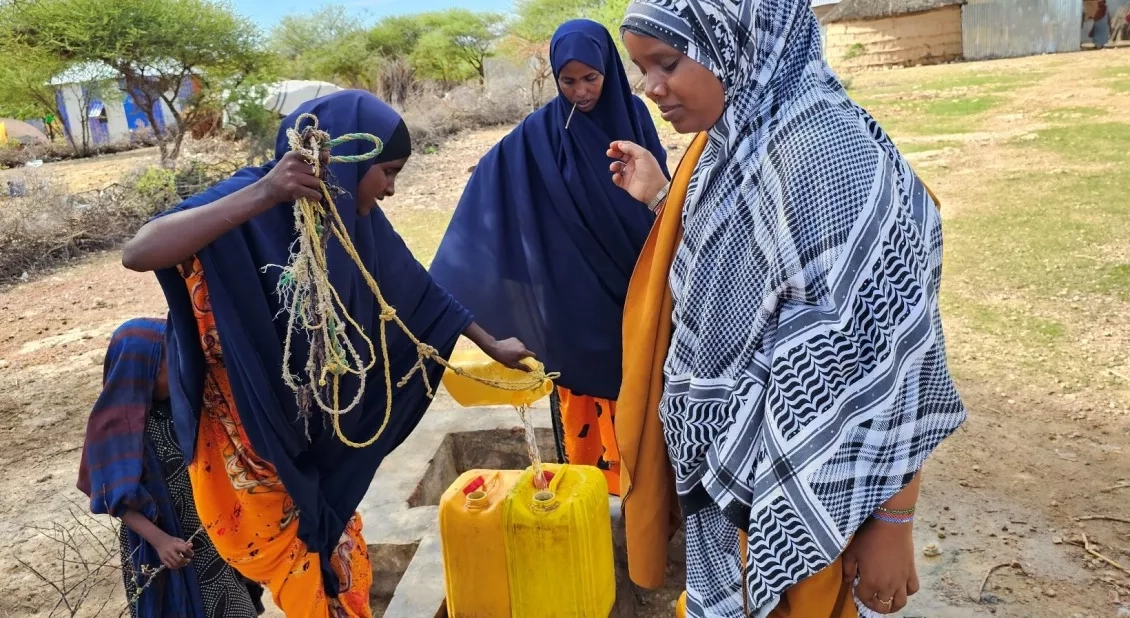
Cash assistance has enabled Habiba to purchase three goats, giving her a new, sustainable source of livelihood. Today, her goats graze close to home, and her 12-year-old daughter, Amina, helps look after them. Habiba built a small, bushy shelter to protect them from wild animals at night.
The assistance has also allowed the family to pay off the $68 debt they owed, giving Habiba the flexibility to borrow again if an emergency arises. She also purchased uniforms, pens, and notebooks for her six children, who are now able to attend school. Habiba can finally envision a brighter future. “I used to worry every single day about feeding my children. Now, I feel empowered as a mother,” she says.
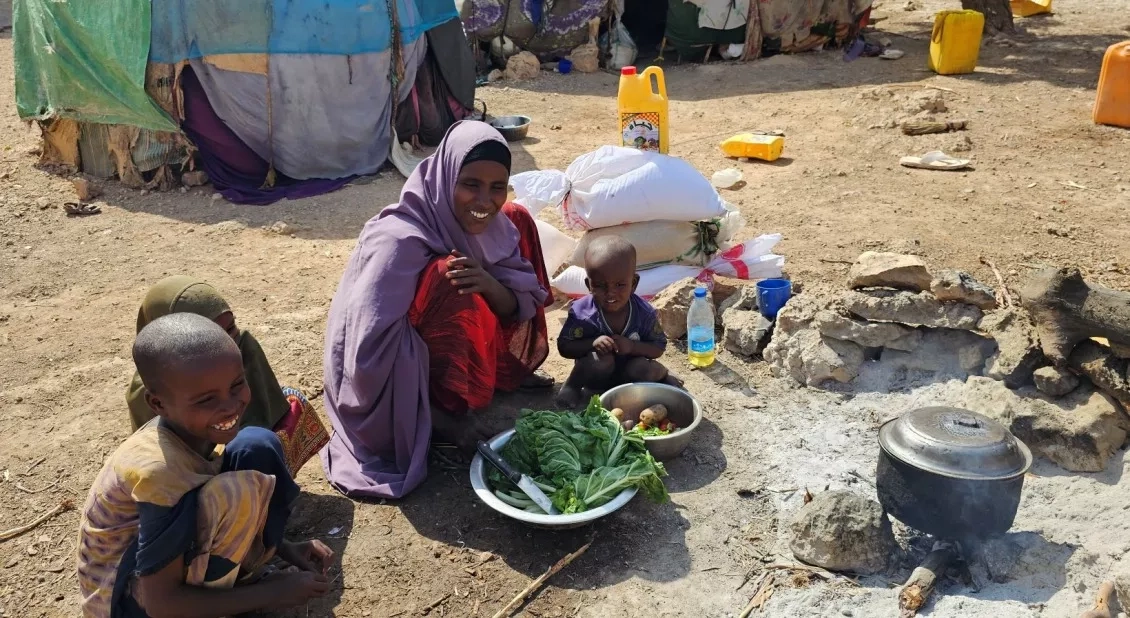
Weather forecasts show that Somalia will likely experience below-average rainfall in the coming months, putting more families at risk of crop failure and food insecurity.
As climate change and conflict continue to shape Somalia’s landscape, Action Against Hunger remains committed to helping families like Habiba’s not only recover but also build resilience. We are working toward a future of sustainable, long-term solutions for all families, and equipping them with the resources and skills needed to thrive independently.
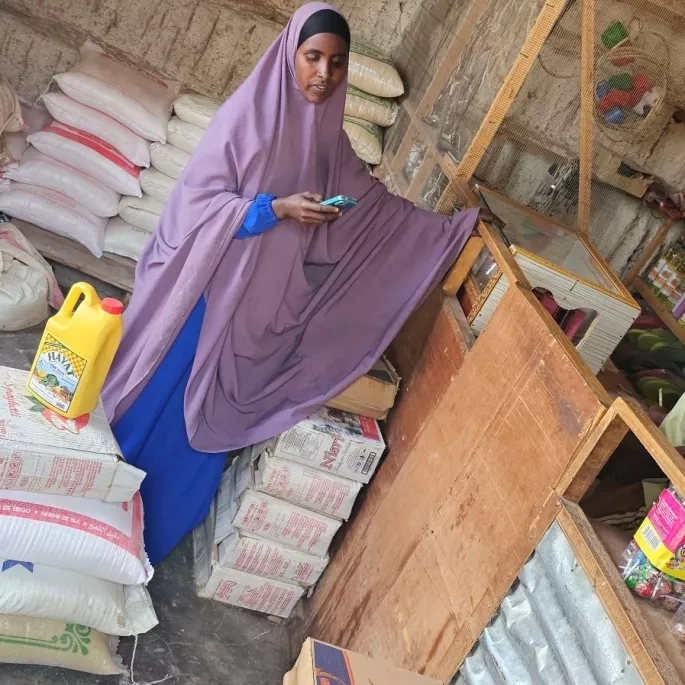
Action Against Hunger has worked in Somalia since 1992. Today, we work in 28 districts, helping over a million people with health interventions, nutrition services, hygiene programs, and more.
Action Against Hunger continues to provide life-saving nutrition, health, and clean water services in Wajid and across the Bakool region. Currently, we have supported over 300 households in Wajid with cash aid and reaching more than 13,000 people across Bakool with a range of essential services. Recent monitoring shows a significant improvement in food security—families with reliable access to food have increased from 53% to 78%.
Our emergency cash assistance, water source rehabilitation and agricultural programs allow families to build long-term resilience. Cash assistance, for instance, does more than just provide immediate relief; it strengthens local markets and enables families to make choices that best suit their needs, laying a foundation for sustainable progress and allowing communities to become stable and independent.
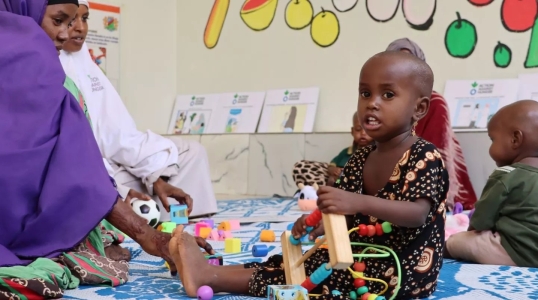
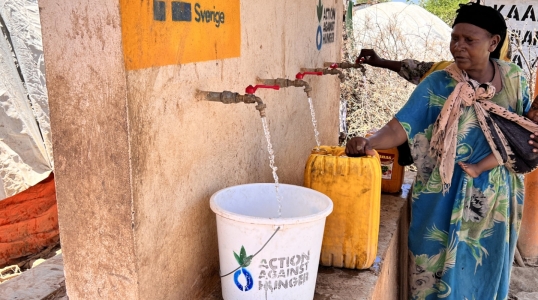
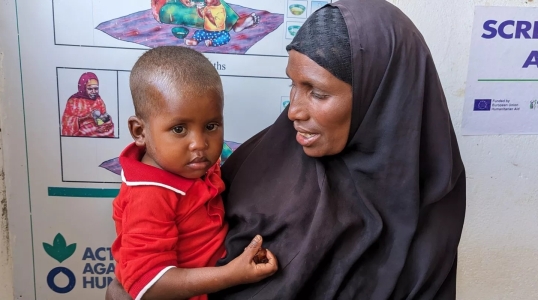
Join our community of supporters passionate about ending world hunger.